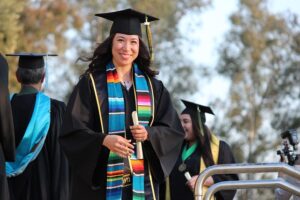Mastering Translation: Elevate Personal Statements for Admissions Success
Effective translation of personal statements and statements of purpose for international education admissions requires understanding cultural nuances to capture both literal meaning and intended sentiment. Professional linguists specializing in acade…….
Effective translation of personal statements and statements of purpose for international education admissions requires understanding cultural nuances to capture both literal meaning and intended sentiment. Professional linguists specializing in academic translation ensure clarity, preserve authenticity, and maintain institutional language standards, enhancing application impact. Peer review, meticulous handling, and adherence to legal/ethical guidelines are crucial for successful translations that set applicants apart and boost admission chances.
“Crafting compelling personal statements or statements of purpose (SOPs) is a critical step in international student applications. However, ensuring accuracy in translation can be challenging. This article guides you through the intricacies of translating personal statements, offering insights on understanding cultural nuances, choosing qualified linguists, and overcoming language-specific challenges. We explore best practices, legal considerations, and techniques to maintain consistency and personal voice. By following these strategies, applicants can ensure their SOPs effectively convey their unique journeys.”
- Understanding Cultural Nuances in Translation
- The Impact of Accurate Translation on Admissions
- Choosing Qualified Linguists for Personal Statements
- Overcoming Challenges in Language Specificity
- Ensuring Consistency Across Translated Documents
- Incorporating Personal Voice in Machine Translation
- Validating Quality through Peer Review
- Legal and Ethical Considerations in Statement Translation
- Best Practices for Accurate, Effective Translation
Understanding Cultural Nuances in Translation
When translating personal statements or statements of purpose for admissions purposes, it’s crucial to go beyond literal word-for-word translations. Effective translation demands a deep understanding of cultural nuances, as ideas and expressions can vary significantly across languages and societies. A simple phrase that seems harmless in one culture might carry different connotations or even be misunderstood in another.
For instance, the concept of “passion” for education may be expressed differently. In some cultures, it’s about a deep, inner drive; while in others, it could be seen as a public display of enthusiasm. Translators must capture not only the literal meaning but also the intended sentiment and cultural context to ensure the personal statement truly reflects the applicant’s motivations and aspirations. This nuanced approach guarantees that admission officers receive a genuine portrayal of the individual, fostering a fair and inclusive selection process.
The Impact of Accurate Translation on Admissions
An accurate translation of personal statements or statements of purpose is paramount for applicants seeking admission into international educational institutions. The quality of translation directly influences the integrity of the application, as it ensures that the applicant’s voice, experiences, and aspirations are conveyed authentically to the admissions committee. Mistranslations can lead to misunderstandings, misinterpretations, or even rejection, despite an otherwise strong application.
When a personal statement is faithfully translated, it allows the admissions officers to gain insight into the candidate’s personality, motivations, and cultural background. This holistic understanding is crucial for making informed decisions, fostering diversity in the student body, and ultimately, contributing to a vibrant academic community. Therefore, prioritizing precise translation services for personal statements and statements of purpose is a strategic move that can significantly impact an applicant’s chances of securing their dream admission.
Choosing Qualified Linguists for Personal Statements
Selecting qualified linguists for translating personal statements or statements of purpose is paramount. When navigating the admissions process, clarity and precision in your writing can make a significant difference. Therefore, enlisting the services of professional translators who specialize in academic or personal statement translation is essential. These experts not only possess linguistic proficiency but also understand the nuances of different educational systems and cultural contexts.
Moreover, experienced linguists can ensure that your personal statements accurately convey your thoughts, experiences, and aspirations while adhering to the specific requirements of the institutions you’re applying to. They employ careful analysis, cultural sensitivity, and a deep understanding of academic language to bridge the gap between your original intent and the target language, thereby enhancing the impact of your application.
Overcoming Challenges in Language Specificity
Writing personal statements or statements of purpose (SOPs) is a crucial part of the application process for many academic programs. However, when applicants come from non-English speaking backgrounds, ensuring accurate translation becomes an essential step. The challenges in language specificity are manifold; nuances and idiomatic expressions often get lost in translation. What might seem like a simple sentence in the original language could become convoluted or even misrepresented in another language, potentially impacting the applicant’s chances of admission.
To overcome these challenges, it is recommended to employ professional translation services with experience in academic documents. These experts not only translate words but also ensure cultural and contextual appropriateness. They understand that personal statements are more than just text; they are a window into an individual’s background, experiences, and aspirations. Therefore, accurate translation preserves the authenticity of the applicant’s voice while meeting the language requirements of the institution.
Ensuring Consistency Across Translated Documents
Maintaining consistency across translated personal statements or statements of purpose is paramount for admissions processes. When these documents are converted from one language to another, it’s crucial to ensure that the meaning, tone, and intent remain unchanged. This involves more than just word-for-word translation; it requires a deep understanding of both the source and target languages and cultures.
Professional translators specialize in preserving context, idiomatic expressions, and cultural nuances. They employ techniques like back-translation and peer review to guarantee accuracy. This meticulous approach ensures that your personal statement, vital for showcasing your background, goals, and fit for a program, conveys your unique voice and message authentically, regardless of the language it’s presented in.
Incorporating Personal Voice in Machine Translation
When crafting personal statements or statements of purpose for university admissions, incorporating one’s unique voice is essential to create an authentic and compelling essay. Machine translation tools have revolutionized the way we communicate, but they often struggle with capturing nuances and individual expressions. To ensure your Personal Statements/Statements of Purpose stand out, it’s crucial to edit and refine the translated text.
The process involves adding personal touches that reflect your unique perspective, experiences, and writing style. This may include using idiomatic expressions, incorporating cultural references, or sharing personal anecdotes that would be difficult for a machine to generate. By doing so, you not only make your essay more engaging but also ensure it resonates with admissions officers, showcasing your individuality and potential as a contributing member of their academic community.
Validating Quality through Peer Review
Peer review is an invaluable tool for ensuring the quality and accuracy of personal statements or statements of purpose (SOPs) for university admissions. This collaborative process involves having experienced educators, academic writers, or subject-matter experts carefully read and evaluate the statement. By engaging in peer review, applicants can gain valuable insights and feedback on their writing, including clarity, coherence, argumentation, and adherence to guidelines.
During this process, peers provide constructive criticism, suggest improvements, and ensure that the SOP effectively communicates the applicant’s unique experiences, goals, and motivations. This multi-faceted approach helps in polishing the statement, making it more compelling and error-free. Validating quality through peer review is an essential step to ensure that personal statements stand out for all the right reasons, enhancing the overall application and increasing the chances of admission.
Legal and Ethical Considerations in Statement Translation
When translating personal statements or statements of purpose for admissions purposes, it’s crucial to navigate a complex landscape of legal and ethical considerations. These documents are often central to an applicant’s profile, reflecting their aspirations, experiences, and unique perspectives. As such, they require meticulous handling to preserve authenticity and meaning across languages.
One key aspect is ensuring cultural sensitivity and accuracy in translation. Personal statements may contain idiomatic expressions or references specific to a certain culture, which professional translators skilled in the source and target languages can effectively convey. Additionally, maintaining academic integrity involves adhering to formatting and citation standards consistent with the receiving institution’s guidelines. Translators must also be vigilant about plagiarism, as direct copying without proper attribution is unethical and can have severe consequences for applicants.
Best Practices for Accurate, Effective Translation
When translating personal statements or statements of purpose for college or university admissions, accuracy is paramount. Here are best practices to ensure your translated documents shine and effectively convey your voice:
First, trust professional translation services with experience in academic writing. Avoid using machine translation tools, as they often miss nuances and cultural references crucial for a compelling personal statement. Qualified translators who understand the target institution’s culture and expectations will capture your unique perspective while adhering to grammatical rules and formal tones expected in these statements. Additionally, proofreading is essential; have a native speaker review the translation to catch any residual errors or ensure the text flows naturally.
When crafting or translating personal statements or statements of purpose for admissions, navigating cultural nuances, choosing qualified linguists, and adhering to legal and ethical guidelines are paramount. The right approach ensures your application stands out while maintaining authenticity. By following best practices that include consistency, peer review, and incorporating personal voice, you can secure a precise translation that boosts your chances of admission without compromising your unique perspective.


